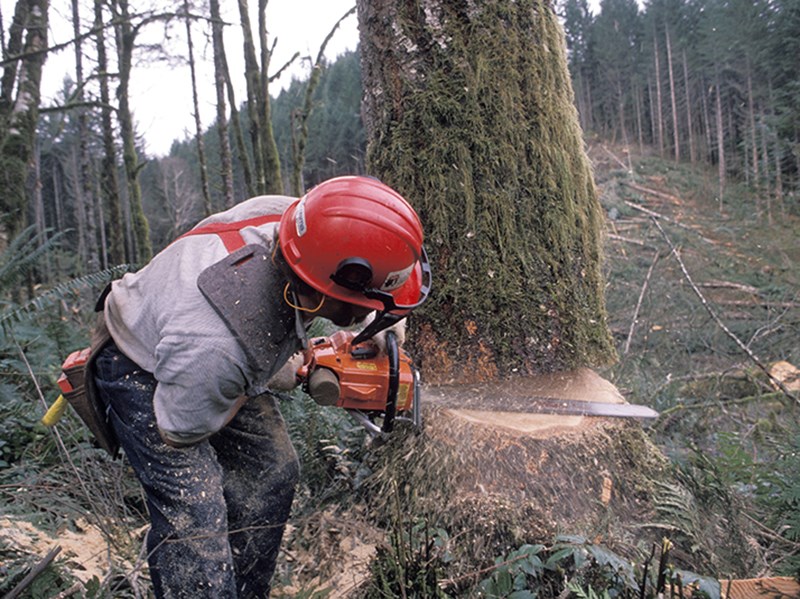BC coastal communities dependent on wood fibre are stepping up their advocacy for changes to provincial forestry practices that will help keep region’s mills operating, according to City of Powell River mayor Dave Formosa.
Formosa addressed city council during its November 2 meeting and referred to a meeting of mayors and senior officials from BCMinistry of Forest, Lands and Natural Resource Operations that was held in Victoria on October 30.
"It was quite a meeting," said Formosa. “Basically, we talked about the urgency for fibre in the industry.”
Five mayors from Vancouver Island and Sunshine Coast communities, along representatives from first nations and industry, met with the government officials to talk about changes that could implemented to improve the amount of wood fibre that is available for sawmills and pulp and paper operations.
“We have a very integrated forest system where small and large sawmills and pulp and paper mills need each other,” said Formosa.
During the 2017 BC wildfires, just more than 12,000 square kilometres of timber, bush and grassland were consumed in the province.
With the reduction in wood fibre availability, Formosa said coastal BC communities should brace for more mills closing.
At Catalyst Paper Corporation’s community stakeholder meeting held last month, Powell River operations manager Fred Chinn told community members in attendance that wood-chip availability and pricing supply continues to be a large challenge for the mill.
Chinn said sawmills in the Lower Mainland, which provide the chips from the round edges of the logs, cut their operations back this summer as a result of the wildfire season.
“All of our wood comes from the interior,” said Chinn.
During the wildfires, the mill had to take wood chips from more coastal species of trees, but they tend to produce darker paper that requires more processing to brighten it, he added.
Forestry in the BC interior has not yet rebounded from the fires and that continues to have a negative impact on coastal mills, said Formosa.
According to the ministry, in September 2015 a fibre action plan was developed in order to address the residential wood from logging.
The plan calls for wood processors to negotiate with harvesters for use of the residual slash, but does not require harvesters to participate.
Formosa added the group of mayors and other community advocates are looking to form a working group to help advise the province on potential solutions and ways to improve the the fibre supply, including developing incentives for logging operators to bring residual wood out of the forest.
Currently, subpar wood is piled up and disposed of in burn piles. That waste is needed badly, he said.
The other solution is to have the province curtail its raw-log exports to China and the USA, he said.
"This conversation has to happen,” said Formosa. “It's time and it's critical."



